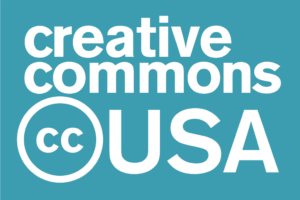 [Ethan Senack, Creative Commons USA, Link (CC-BY)] Today, Senators Durbin, Franken, and King, in conjunction with Representatives Polis and Sinema, introduced the Affordable College Textbook Act to the 115th Congress. In summary, the Affordable College Textbook Act provides funding for institutions of higher education to develop, adapt, and adopt openly-licensed educational resources that “either reside in the public domain or have been released under an intellectual property license that permits their free use, reuse, modification, and sharing with others.”
[Ethan Senack, Creative Commons USA, Link (CC-BY)] Today, Senators Durbin, Franken, and King, in conjunction with Representatives Polis and Sinema, introduced the Affordable College Textbook Act to the 115th Congress. In summary, the Affordable College Textbook Act provides funding for institutions of higher education to develop, adapt, and adopt openly-licensed educational resources that “either reside in the public domain or have been released under an intellectual property license that permits their free use, reuse, modification, and sharing with others.”
As the cost of higher education increases, more and more students struggle to meet the financial demands necessary to pursue their education. Books and learning materials in particular pose an outsized barrier to student success – costing families hundreds of dollars every year, often out-of-pocket.
This legislation attempts to address the skyrocketing cost of textbooks, leveraging federal resources to break the current monopoly that big publishers hold over the market.
Per a joint press release from the sponsor’s offices, “the Affordable College Textbook Act:
- Creates a grant program to support pilot programs at colleges and universities to create and expand the use of open textbooks with priority for those programs that will achieve the highest savings for students;
- Ensures that any open textbooks or educational materials created using program funds will be freely and easily accessible to the public;
- Requires entities who receive funds to complete a report on the effectiveness of the program in achieving savings for students;
- Improves existing requirements for publishers to make all textbooks and other educational materials available for sale individually rather than as a bundle; and
- Requires the Government Accountability Office to report to Congress with an update on the price trends of college textbooks.”
###
Creative Commons USA is an affiliate of the Creative Commons Global Network. We focus on furthering progress toward open culture, open education, open data, and open access to research in the United States. We provide legal expertise around the Creative Commons licenses, support to organizations and institutions that use (or could use) open licensing, and advice for decision-makers on copyright issues and policies that impact our trend toward a more open society.
CONTACT: Ethan Senack
Outreach and Policy Manager
Creative Commons USA
esenack@creativecommonsusa.org
860-309-9271




